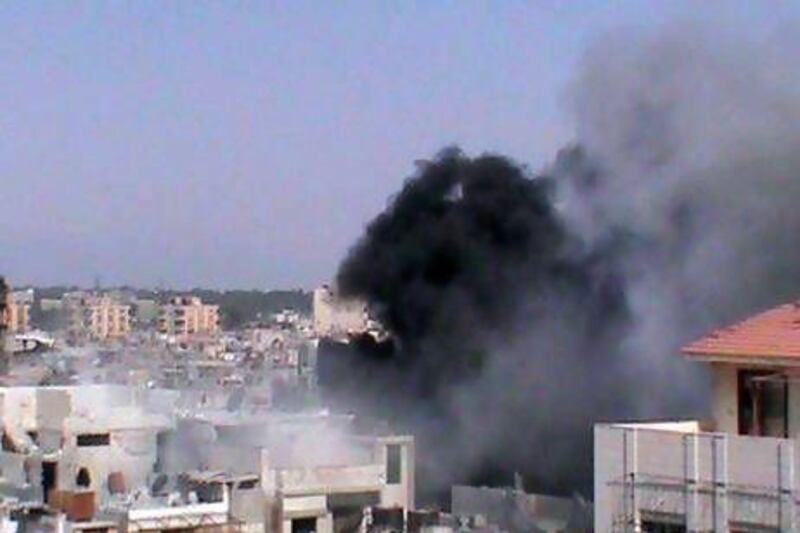Ibrahim barely recognises his home town, Homs. "It has been destroyed," says the Sharjah resident. "No one lives there any more."
Two weeks after taking part in one of the first demonstrations in the city, last March, Ibrahim left for a job in the UAE.
Little did he know his city would be the most heavily affected of the uprising, with a reported death toll of more than 7,700.
Since the beginning of the revolution, the city has been split in two - the Alawites unscathed in the countryside, and the rest of the population in the heavily shelled urban centre.
"The original Homsis were all Sunnis, but then the Alawites came. They all had a house in the city, and another in the countryside. As soon as the uprising started, they moved to the countryside where the regime knew they were, so they were protected."
Many senior government positions are held by Alawites. But before the uprising, the sectarian divide was largely invisible.
"We all got along," he said. "Some in my family had even married Alawites, and we were all happy together."
He said the attacks on Sunnis, Christians, Kurds and Druze - but not Alawites - made it clear where the regime's allegiance lay.
However, he has experienced no sectarian tension with other Syrians in the UAE. "We never had problems with each other, and as soon as the regime goes, we can all go back to getting along again."
The Alawites aside, more than 90 per cent of residents have fled Homs, particularly during January, when temperatures dropped to 4°C and there was no electricity, water, and little affordable food.
During that month after the Arab League monitors had left the city, armed vehicles entered, and it was shelled repeatedly.
Calling home became particularly stressful for Ibrahim, especially when he failed to get a connection.
"If the electricity and phone networks were cut off, it meant that area would be shelled. This is so people didn't call anyone and let them know. I would be very worried when the phones stopped working."
Within days, people started leaving. "No one asked the people to leave, but during that month the majority of them left. The shooting was so random, on trees, on houses, on streets, on rocks, anything. No one felt safe. Homs is now almost empty."
Many have no idea whether their houses are still standing. Of 60 family friends and relatives, two believe their houses have been destroyed, and the rest all either raided or badly damaged.
"I have friends who left, and I cannot call, I don't know if they are alive or not," Ibrahim said. "There is no way to reach them. We never wanted the uprising to reach this far."
There has been less shelling since the start of Ramadan, but Ibrahim believes this is because there is "no one left to kill".
"The Sunnis in the countryside are still being bombed, but the Alawites are left at peace, and the city has no one left."
* Ola Salem






